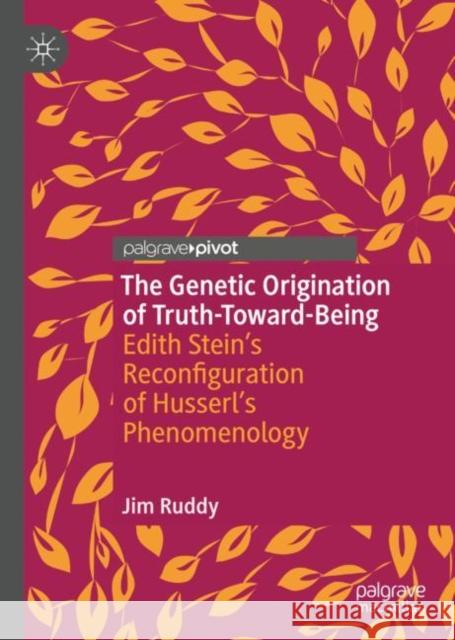The Genetic Origination of Truth-Toward-Being: Edith Stein’s Reconfiguration of Husserl’s Phenomenology » książka
The Genetic Origination of Truth-Toward-Being: Edith Stein’s Reconfiguration of Husserl’s Phenomenology
ISBN-13: 9783031147937 / Angielski / Twarda / 2022 / 109 str.
The Genetic Origination of Truth-Toward-Being: Edith Stein’s Reconfiguration of Husserl’s Phenomenology
ISBN-13: 9783031147937 / Angielski / Twarda / 2022 / 109 str.
(netto: 172,09 VAT: 5%)
Najniższa cena z 30 dni: 173,46
ok. 22 dni roboczych
Dostawa w 2026 r.
Darmowa dostawa!
Using both Father Kevin Wall’s eidetic matrix of “the relational unity of being” and Edith Stein’s remarkable synoptic view of intentionality in both Aquinas and Husserl, this book uncovers purely logical ground for a subalternate eidetic science called "convergent phenomenology," itself located at the inmost depths of Husserlian phenomenology. Convergent phenomenology emerges as a distinctively new discipline dealing with relation-like objectivity as opposed to the thing-like objectivity of traditional phenomenology. This has grand implications for the way we as humans conceive of God and being. The book thus benefits theologians, logicians, and phenomenologists by revealing the constitutive interrelationality of transcendental logic in an utterly new light as already flowering forth into formal ontology itself. What emerges is a rich conception of divinity and humanity.
Using both Father Kevin Wall’s eidetic matrix of “the relational unity of being” and Edith Stein’s remarkable synoptic view of intentionality in both Aquinas and Husserl, this book uncovers purely logical ground for a subalternate eidetic science called "convergent phenomenology," itself located at the inmost depths of Husserlian phenomenology. Convergent phenomenology emerges as a distinctively new discipline dealing with relation-like objectivity as opposed to the thing-like objectivity of traditional phenomenology. This has grand implications for the way we as humans conceive of God and being. The book thus benefits theologians, logicians, and phenomenologists by revealing the constitutive interrelationality of transcendental logic in an utterly new light as already flowering forth into formal ontology itself. What emerges is a rich conception of divinity and humanity.











